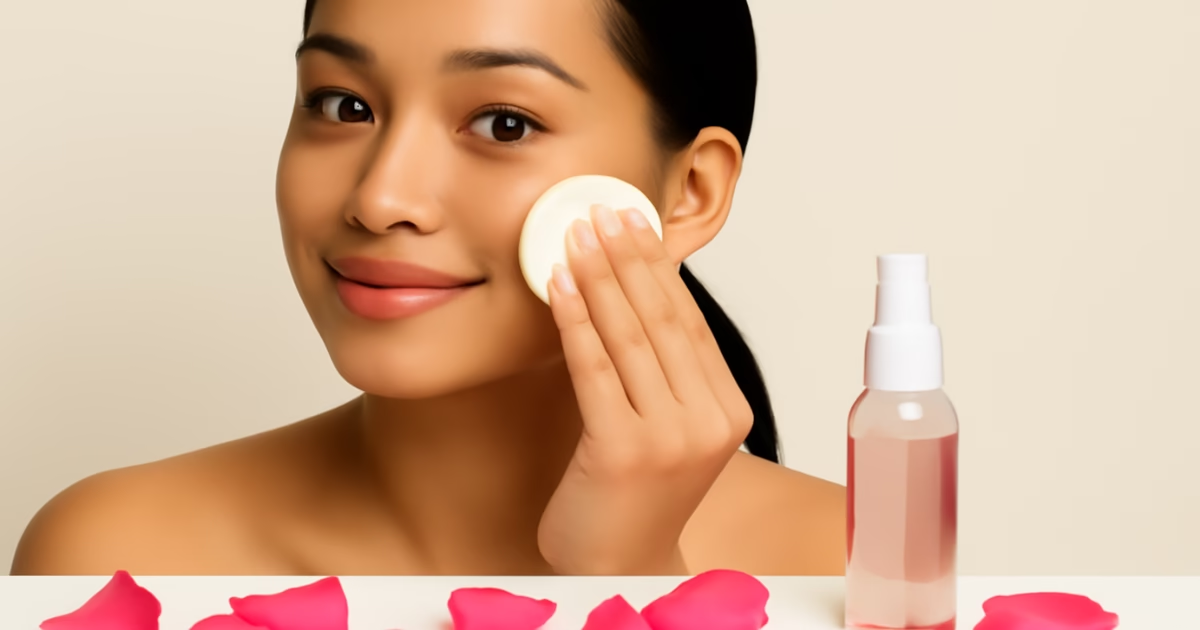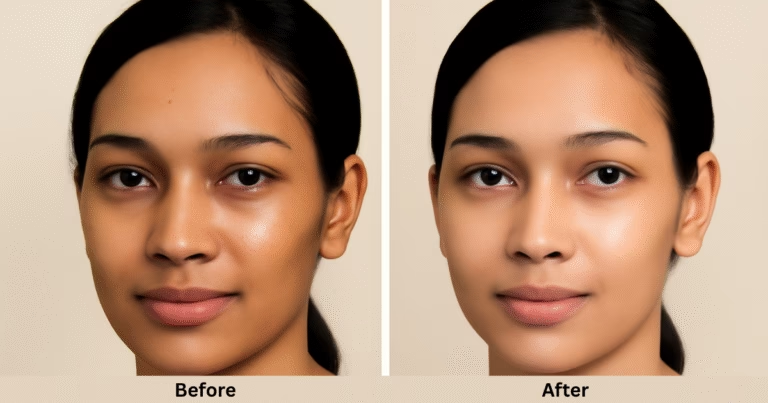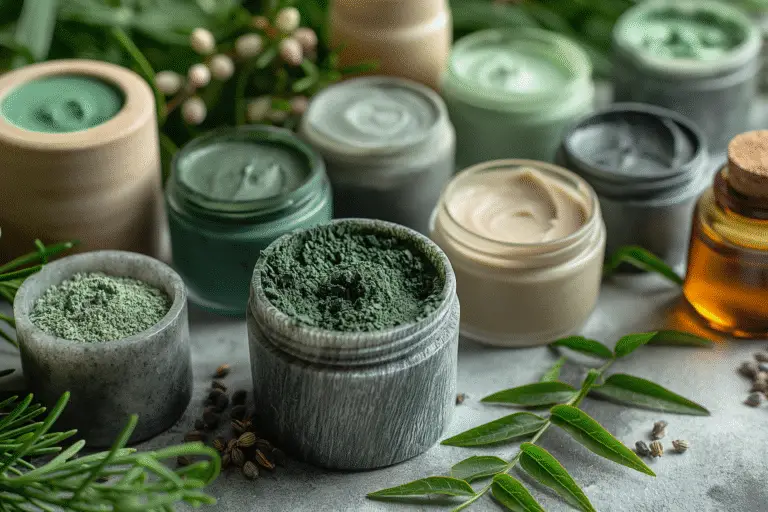You’ve probably heard friends raving about their new skincare routine that includes rose water, or maybe you’ve spotted those pretty bottles of rose water in the beauty aisle and wondered what all the fuss is about. The question that keeps popping up in beauty circles is simple yet important: Is rose water a toner?
I’ve spent countless hours researching natural skincare solutions, and rose water consistently emerges as one of the most versatile and beloved ingredients in the beauty world. This comprehensive guide explores everything you need to know about using rose water as a toner, backed by scientific research and expert insights.
Whether you’re a skincare newbie or someone looking to simplify your routine with natural alternatives, understanding how rose water functions as a toner can revolutionize your approach to healthy, glowing skin.
Table of Contents
Key Takeaways
- Rose water is indeed a natural toner that effectively balances skin pH, hydrates, and refreshes without harsh chemicals
- Pure rose water has a pH of 4.0-5.5, making it ideal for maintaining skin’s natural acid mantle and reducing irritation
- Anti-inflammatory and antibacterial properties make rose water suitable for all skin types, especially sensitive and acne-prone skin
- Rose water toner works best when applied after cleansing and before moisturizing as part of your daily skincare routine
- Scientific studies confirm rose water’s effectiveness in hydrating skin, reducing redness, and providing antioxidant benefits
- Commercial rose water toners often include additional ingredients like glycerin, witch hazel, or hyaluronic acid for enhanced benefits
- DIY rose water toner can be easily made at home using just rose petals and distilled water through simple steaming methods
What Is Rose Water and How Is It Made?

Rose water is a fragrant liquid created by distilling rose petals with steam. This ancient beauty remedy, primarily made from Rosa damascena (Damask rose), has been treasured for centuries across cultures from the Middle East to India.
The production process is beautifully simple yet scientifically precise. Fresh rose petals undergo steam distillation, where hot steam passes through the petals, capturing their essence and beneficial compounds. What emerges is a clear, aromatic liquid packed with natural oils, antioxidants, and therapeutic compounds.
Think of it as capturing the soul of a rose in liquid form – all the healing properties without any synthetic additives or harsh chemicals that you’d find in commercial toners.
The Science Behind Rose Water’s Composition
Rose water contains several bioactive compounds that contribute to its skincare benefits:
Primary active compounds include:
- Polyphenols and flavonoids – powerful antioxidants that protect against free radical damage
- Natural sugars – provide moisture-retaining properties
- Rose oil constituents – contribute to anti-inflammatory effects
- Tannins – offer gentle astringent properties for pore refinement
Recent scientific research confirms that rose water demonstrates significant antioxidant activity, with studies showing DPPH radical scavenging rates above 90%.
Is Rose Water a Toner? The Scientific Answer
Yes, rose water is definitively a natural toner. But let’s break down exactly what this means and why it’s so effective.
Understanding What Makes a Toner
Traditional toners serve several key functions:
- Remove residual dirt and makeup after cleansing
- Balance skin pH levels
- Prepare skin for subsequent skincare products
- Provide specific treatment benefits
Rose water checks every single box on this list, and often does it more gently than synthetic alternatives.
pH Balance: The Critical Factor
One of the most important aspects of any toner is pH balance. Our skin’s natural pH ranges between 4.7-5.8, and rose water falls perfectly within this range at 4.0-5.5. This optimal pH level means rose water can:
- Restore skin’s natural acid mantle after cleansing
- Reduce irritation and sensitivity
- Support the skin’s protective barrier function
- Prevent the overproduction of oils that can lead to breakouts
How Rose Water Compares to Commercial Toners
| Feature | Rose Water Toner | Traditional Toners |
|---|---|---|
| pH Level | 4.0-5.5 (ideal) | Often too acidic or alkaline |
| Alcohol Content | None | Frequently high, causing dryness |
| Chemical Additives | None | Preservatives, fragrances, sulfates |
| Skin Compatibility | All skin types | Often specific to skin type |
| Anti-inflammatory | Yes | Rarely |
| Hydration | Provides moisture | Often drying |
The Science-Backed Benefits of Using Rose Water as Toner
1. Powerful Anti-Inflammatory Properties
Scientific research published in peer-reviewed journals demonstrates that rose water contains compounds that significantly reduce skin inflammation. A 2017 study found that rose water suppressed neutrophil activation and reduced inflammatory cytokine expression.
This means rose water can:
- Calm irritated or sensitive skin
- Reduce redness from acne or environmental stressors
- Soothe conditions like eczema or rosacea
- Provide relief after sun exposure
2. Natural Antimicrobial Action
Rose water demonstrates remarkable antimicrobial properties against skin-related bacteria. Research shows it can inhibit the growth of Candida albicans and even methicillin-resistant Staphylococcus aureus (MRSA).
For your skin, this translates to:
- Reduced acne-causing bacteria on the surface
- Lower risk of skin infections
- Cleaner, clearer complexion over time
- Natural preservation of skin health
3. Deep Hydration Without Greasiness
Unlike many commercial toners that strip moisture, rose water acts as a natural humectant, attracting and retaining skin moisture. Studies show it improves the skin’s hydration levels significantly while maintaining a light, non-greasy feel.
4. Antioxidant Protection
Rose water provides substantial antioxidant benefits, with research showing it can neutralize free radicals that cause premature aging. A 2024 study found rose water extracts demonstrated over 76% antioxidant activity.
Who Should Use Rose Water as a Toner?
Perfect Candidates for Rose Water Toner
Rose water toner works exceptionally well for:
Sensitive skin sufferers – The gentle, non-irritating formula soothes rather than aggravates
Acne-prone individuals – Antimicrobial properties help reduce breakout-causing bacteria while balancing oil production
Dry skin types – Natural humectant properties provide essential hydration
Mature skin concerns – Antioxidants help combat signs of aging while maintaining skin elasticity
Anyone seeking natural alternatives – Perfect for those wanting to avoid harsh chemicals and synthetic ingredients
Age and Skin Type Considerations
Age range: Most effective for adults 18-44, though suitable for all ages
Skin types: Universally compatible – from oily to dry, sensitive to normal
The beauty of rose water lies in its gentle nature. Unlike many toners that are formulated for specific skin types, rose water naturally adapts to your skin’s needs.
How to Use Rose Water as Toner: Step-by-Step Guide
The Perfect Rose Water Toner Application
Step 1: Start with Clean Skin
Begin with freshly cleansed face using your regular cleanser. Pat dry gently with a clean towel.
Step 2: Choose Your Application Method
- Cotton pad method: Saturate a cotton pad with rose water and gently sweep across face and neck
- Direct spray method: Mist rose water 6-8 inches away from face
- Palm application: Pour a small amount into clean palms and gently pat onto skin
Step 3: Let It Absorb
Allow rose water to partially absorb into skin for 30-60 seconds. Don’t wipe it off completely26.
Step 4: Follow with Moisturizer
Apply your regular moisturizer while skin is still slightly damp to lock in hydration.
Timing and Frequency
Daily routine:
- Morning: After cleansing, before sunscreen and makeup
- Evening: After cleansing, before serums and night moisturizer
Frequency: Can be used twice daily or as needed throughout the day for refreshing hydration.
Pro Tips for Maximum Benefits
Refrigerate for extra soothing effect – Cold rose water feels especially refreshing and can help reduce puffiness
Layer with other products carefully – Rose water pairs well with most ingredients, but avoid mixing with undiluted essential oils
Use as makeup setting spray – A light mist over finished makeup can provide a dewy, fresh look
Rose Water vs. Commercial Toners: A Detailed Comparison
Ingredient Transparency
Rose Water Advantages:
- Single ingredient or minimal natural additives
- No hidden chemicals or synthetic preservatives
- Easy to understand what you’re putting on your skin
Commercial Toner Concerns:
- Long ingredient lists with unpronounceable chemicals
- Potential allergens and irritants
- Alcohol-based formulas that can be overly drying31
Cost-Effectiveness Analysis
| Product Type | Average Cost | Duration | Cost per Use |
|---|---|---|---|
| Pure Rose Water | $8-15/200ml | 2-3 months | $0.04-0.08 |
| Mid-range Commercial Toner | $20-40/150ml | 2 months | $0.13-0.27 |
| High-end Toner | $50-80/200ml | 2-3 months | $0.28-0.53 |
Effectiveness Comparison
Where rose water excels:
- Gentleness for sensitive skin
- Natural hydration
- Anti-inflammatory benefits
- Universal compatibility
Where commercial toners may have advantages:
- Targeted active ingredients (like salicylic acid for acne)
- Longer shelf life
- Consistent formulation
- Specific treatment benefits
Best Rose Water Toner Products and Brands
Top Commercial Rose Water Toners
1. Plum Bulgarian Valley Rose Water Toner
- Enhanced with hyaluronic acid and calendula extracts
- Ideal for hydration and pore tightening
- Price range: $15-20
2. Forest Essentials Pure Rose Water Facial Toner
- 100% organic steam-distilled rose water
- Premium quality with authentic fragrance
- Price range: $25-35
3. Kama Ayurveda Pure Rose Water
- Highly rated by beauty enthusiasts
- Traditional preparation methods
- Price range: $12-18
4. Heritage Store Rosewater & Glycerin
- Added hyaluronic acid for extra hydration
- Long-standing brand reputation
- Price range: $8-12
What to Look for When Shopping
Essential criteria:
- 100% pure rose water or minimal natural additives
- Steam distilled preparation method
- No alcohol, parabens, or synthetic fragrances
- Proper packaging (dark glass bottles preferred)
- Clear ingredient list and sourcing information
Red flags to avoid:
- Artificially fragranced products
- High alcohol content
- Suspicious pricing (too cheap often indicates synthetic alternatives)
- No ingredient transparency
DIY Rose Water Toner: Make Your Own at Home
Simple Homemade Rose Water Recipe
Ingredients needed:
- 2 cups fresh organic rose petals (or 1 cup dried)
- 2 cups distilled water
- Large pot with lid
- Strainer
- Clean glass bottles for storage
Step-by-step instructions:
- Rinse rose petals thoroughly to remove any debris
- Place petals in pot and cover with distilled water
- Bring to gentle boil, then reduce to simmer
- Cover and simmer for 15-20 minutes until petals lose color
- Strain liquid through fine mesh strainer
- Cool completely before transferring to sterilized glass containers
- Store in refrigerator for up to one week
Enhanced DIY Formulations
For dry skin – Moisturizing Rose Water Toner:
- 2 parts rose water
- 1 part witch hazel
- 5-10 drops glycerin
For oily/combination skin:35
- 30ml rose water
- 5ml glycerin
- 5ml apple cider vinegar
For sensitive skin:
- Pure rose water only (no additional ingredients)
Storage and Safety Tips
Proper storage:
- Use sterilized glass containers only
- Refrigerate homemade rose water
- Use within 1 week for fresh preparations
- Label with preparation date
Safety considerations:
- Always use organic, pesticide-free roses
- Perform patch test before first use
- Discontinue if any irritation occurs
Potential Side Effects and Precautions
Understanding Possible Reactions
While rose water is generally considered very safe for most people, some individuals may experience sensitivity reactions.
Potential side effects include:
- Mild skin redness or irritation
- Allergic contact dermatitis in rare cases
- Temporary dryness if using poor-quality products
- Eye irritation if applied too close to eyes
Risk Factors to Consider
Higher risk individuals:
- Those with known rose or pollen allergies
- People with extremely sensitive skin conditions
- Individuals using other active skincare ingredients simultaneously
Safety Guidelines
Essential precautions:
- Always patch test first – Apply small amount to inner wrist and wait 24-48 hours
- Choose high-quality products – Avoid artificially fragranced or chemically-enhanced versions
- Start gradually – Begin with once-daily use to assess tolerance
- Discontinue if irritation occurs – Stop use immediately and consult dermatologist if needed
The Science: Research Studies on Rose Water
Clinical Evidence for Skincare Benefits
Recent scientific studies provide compelling evidence for rose water’s effectiveness:
2024 Research on Rosa Damascena:
A comprehensive study published in Skin Research and Technology demonstrated that rose water extracts showed:
- 76% antioxidant activity
- Significant anti-inflammatory properties
- Superior skin whitening and anti-wrinkle effects
- Strong ability to inhibit skin-aging enzymes
2018 Anti-Inflammatory Study:
Research published in the Food & Chemical Toxicology journal found that rose petal extracts effectively:
- Reduced UV-induced skin inflammation
- Suppressed inflammatory cytokine production
- Provided significant antioxidant protection
2017 Antimicrobial Research:
A study in Biological and Pharmaceutical Bulletin confirmed rose water’s ability to:
- Inhibit growth of skin infection-causing bacteria
- Reduce neutrophil activation in inflammatory responses
- Provide antimicrobial effects at concentrations as low as 2.2%
Dermatologist Perspectives
Leading dermatologists recognize rose water’s benefits. Dr. Paul Jarrod Frank, celebrity cosmetic dermatologist, notes that rose water “is anti-inflammatory and calming for sensitive skin, which is great for people who have redness, rosacea, or eczema”.
Dr. Hadley King, dermatologist, adds that “rose water acts as an inhibitor against elastase and collagenase, meaning that it can have anti-aging effects” and “has been shown to be highly effective in hydrating the outermost layers of our skin”.
FAQ Section
Q: Is rose water a toner that can replace my regular toner completely?
A: Yes, pure rose water can effectively replace traditional toners for most people. It provides all the essential functions of a toner – pH balancing, pore refinement, and skin preparation – while being gentler than many commercial alternatives.
Q: How often should I use rose water as a toner?
A: Rose water toner can be used twice daily as part of your regular skincare routine. Many people also use it throughout the day as a refreshing mist, especially in dry or air-conditioned environments.
Q: Can rose water toner cause breakouts?
A: Pure rose water is non-comedogenic and helps reduce acne-causing bacteria on the skin. However, some commercial rose water products with added oils or heavy ingredients might clog pores in sensitive individuals.
Q: Is homemade rose water toner as effective as store-bought versions?
A: Homemade rose water can be equally effective if prepared properly with quality ingredients. The main advantages of commercial versions are longer shelf life and consistent formulation, while DIY versions offer complete control over ingredients.
Q: Should I use rose water toner if I have oily skin?
A: Absolutely! Rose water helps balance oil production rather than stripping natural oils, which can trigger more oil production. Its gentle astringent properties help refine pores without over-drying.
Q: Can I use rose water toner with other active skincare ingredients like retinol or vitamin C?
A: Rose water is generally compatible with most skincare ingredients due to its gentle nature. However, avoid mixing rose water directly with undiluted essential oils, and always introduce new combinations gradually.
Conclusion
Is rose water a toner? The answer is a resounding yes – and it might just be one of the best natural toners available. With scientific backing, centuries of traditional use, and countless satisfied users, rose water proves that sometimes the simplest solutions are the most effective.
Rose water offers everything you want in a toner: pH balancing, hydration, anti-inflammatory benefits, and antimicrobial protection, all without harsh chemicals or synthetic additives. Whether you choose a high-quality commercial product or decide to make your own at home, incorporating rose water into your skincare routine can provide gentle yet effective results.
The beauty of rose water lies not just in its effectiveness, but in its universal compatibility with all skin types and its ability to simplify your skincare routine without compromising results. As more people seek natural, gentle alternatives to chemical-laden products, rose water stands out as a time-tested solution that modern science continues to validate.
Ready to discover what rose water can do for your skin? Start with a patch test, choose a quality product, and experience firsthand why this natural toner has remained a beauty staple across cultures and centuries.
Have you tried rose water as a toner? I’d love to hear about your experience and how it’s transformed your skincare routine! Share your rose water success stories in the comments below.





